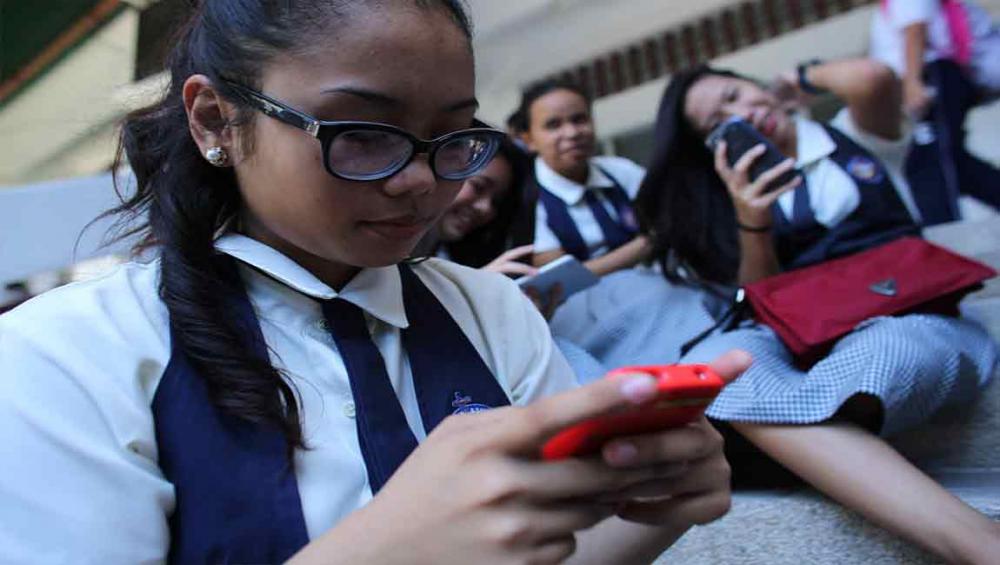Just Earth News | @JustEarthNews | 07 Feb 2018

UNICEF/Estey
New York, Feb 7 (JEN): Every half a second, every day, a child goes online for the first time – tapping into all the great opportunities the Internet has to offer, but facing grave risks, the United Nations Children’s Fund (UNICEF) said Tuesday, calling for urgent action to protect them from sexual exploitation, cyberbullying and the misuse of their private information.
“The potential of connectivity makes it easier for children to connect with their peers anywhere in the world […] is a tool for children’s empowerment and engagement with their communities. However, this connectivity puts them at risk of their private information, access to harmful content, and cyberbullying,” said Sheldon Yett, UNICEF Pacific Representative.
As outlined in The State of the World’s Children 2017: Children in a digital world Worldwide, one-in-three internet users is a child, and yet too little is done to protect them from digital world perils.
“Every day, thousands of children are going online for the first time, which opens them up to a flood of dangers we are just coming to appreciate, let alone address,” said Laurence Chandy, UNICEF Director of Data, Research and Policy.
“While governments and the private sector have made some progress in formulating policies and approaches to eliminate the most egregious online risks, more effort must be made to fully understand and protect children’s online lives,” he added.
UNICEF is working with governments in the Pacific to deliver cyber safety programmes particularly in Tonga and Samoa and provide tips to parents on how to protect their children online.
“Collective action – by governments, the private sector, children’s organizations, academia, families and children themselves – is needed to level the digital playing field and ensure safer internet spaces for children,” Chandy affirmed.
The report underscores that everyone is obliged to protect children in the digital world, including governments, families, schools and other institutions – with a special note that technology and telecommunication industries have a significant responsibility to shape the impact of digital technology on children.
UNICEF is calling for renewed urgency and cooperation among governments, civil society, UN agencies and, most significantly, the private sector, to put children at the centre of digital policy by coordinating global, regional and national responses; safeguarding children’s privacy; empowering children online through more equitable access and digital literacy; and investing in better evidence about access, opportunities and risks for children online.
“In the time it takes to click on a link, a child somewhere begins creating a digital trail which those not necessarily considering the child’s best interest can follow and potentially exploit,” Chandy stressed.
“As younger and younger children join the Internet, the need to have a serious discussion about how to keep them safe online and secure their digital footprint becomes increasingly urgent,” he concluded.